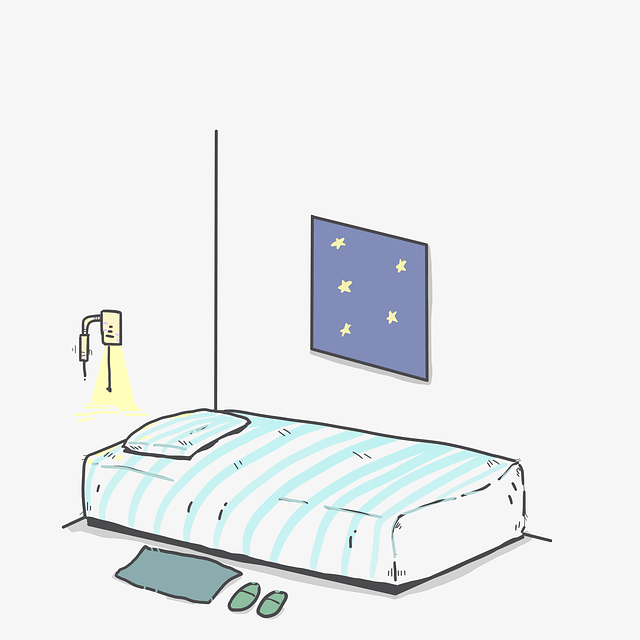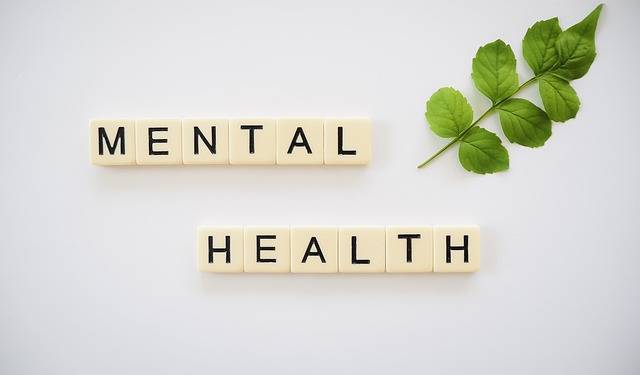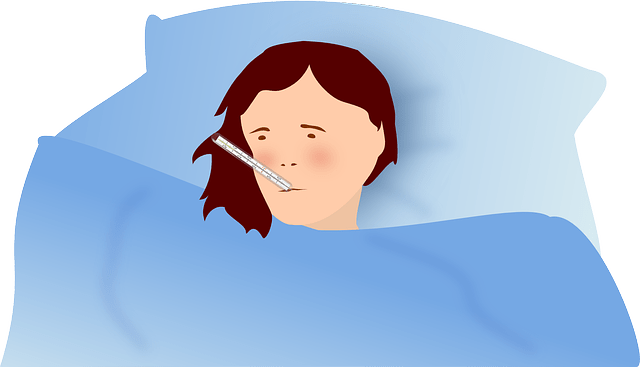Introduction:
In our fast-paced world, the importance of a good night’s sleep cannot be overstated. A restful night’s sleep is essential for physical health, mental well-being, and overall productivity. Unfortunately, many people struggle to achieve this, often plagued by insomnia, stress, or a noisy environment. In this article, we will explore 15 practical tips to help you get the restful sleep you deserve. Say goodbye to restless nights and hello to a rejuvenated morning.
Understanding the Sleep Cycle: The Basics of Sleep and Circadian Rhythms:
Sleep is an essential aspect of our daily lives, yet it remains a complex and fascinating process that scientists are continually studying to unlock its mysteries. To understand the sleep cycle, we need to delve into the basics of sleep and the concept of circadian rhythms. These elements play a fundamental role in regulating our sleep patterns and overall well-being.
The Basics of Sleep:
Sleep is a natural and recurring state of rest for the body and mind, allowing for essential physical and cognitive restoration. It is not a passive state; instead, it is an active and dynamic process characterized by distinct stages and cycles.
For more details visit: cdc.gov
Sleep Stages:
Sleep is divided into two main categories: Rapid Eye Movement (REM) sleep and Non-Rapid Eye Movement (NREM) sleep. These stages are further subdivided into four NREM stages (N1, N2, N3, and N4), with N3 and N4 representing the deepest stages of sleep.
NREM Sleep: The initial stages (N1 and N2) are characterized by light sleep. During N3 and N4, also known as slow-wave sleep, the body undergoes crucial physical restoration processes, including tissue repair, muscle growth, and immune system maintenance.
REM Sleep: REM sleep is a unique stage where dreaming occurs. It is characterized by rapid eye movement, increased brain activity, and muscle paralysis to prevent acting out dreams. REM sleep is essential for emotional processing and memory consolidation.
The sleep cycle consists of several repetitions of these NREM and REM stages, with each complete cycle lasting about 90-120 minutes. A typical night’s sleep involves multiple cycles, allowing the body to experience various stages of rest and rejuvenation.
Circadian Rhythms:
Circadian rhythms are internal biological clocks that regulate many of our bodily functions, including the sleep-wake cycle. These rhythms are influenced by external cues, primarily exposure to natural light and darkness, and they play a crucial role in determining when we feel alert and when we feel drowsy.
Key features of circadian rhythms include:
The Suprachiasmatic Nucleus (SCN): Located in the hypothalamus, the SCN is often referred to as the “master clock.” It receives input from light-sensitive cells in the retina and helps synchronize our internal body clocks with the external day-night cycle.
Melatonin Production: The pineal gland in the brain produces melatonin, a hormone that helps regulate sleep-wake cycles. Melatonin levels rise in the evening, making us feel drowsy, and decline in the morning, promoting wakefulness.
Chronotype: Individual differences in circadian rhythms result in different “chronotypes.” Some people are naturally “morning larks” who are most alert in the morning, while others are “night owls” who are more alert in the evening.
Circadian rhythms can be disrupted by factors such as shift work, jet lag, and exposure to artificial light at night, leading to sleep disturbances and various health issues.

Understanding the Interaction:
The sleep cycle and circadian rhythms are intricately connected. The circadian system influences the timing of sleep and wakefulness, determining when we naturally feel most alert or drowsy. The sleep cycle, on the other hand, defines the quality of sleep we experience throughout the night.
To optimize sleep and promote overall well-being, it’s essential to align your sleep schedule with your circadian rhythms. This means going to bed and waking up at times that correspond with your natural chronotype and ensuring that you get enough sleep cycles to support physical and mental rejuvenation.
Creating the Ideal Sleep Environment:
A restful night’s sleep depends not only on understanding the intricacies of the sleep cycle and circadian rhythms but also on creating the ideal sleep environment. The environment in which you sleep plays a vital role in ensuring the quality and duration of your sleep. Let’s explore some key factors that contribute to the creation of the ideal sleep environment:
Comfortable Bed and Mattress:
The foundation of a good night’s sleep is a comfortable bed and mattress. Here are some essential considerations:
Mattress: Your mattress should provide proper support for your body while also being comfortable. Different individuals may prefer various types of mattresses, such as memory foam, innerspring, or latex, depending on their personal comfort and support preferences. It’s crucial to replace your mattress if it’s worn out or causes discomfort.

Pillows: The right pillow can make a significant difference in sleep quality. It should support your head and neck in a neutral position. Select a pillow that aligns with your sleep position, whether you sleep on your back, side, or stomach.

Bedding: High-quality, breathable bedding can help regulate body temperature and moisture during the night. Opt for comfortable sheets and blankets appropriate for the season to ensure you’re neither too hot nor too cold.
Optimal Room Temperature:
The temperature of your sleep environment can greatly impact your sleep quality. The ideal room temperature is typically around 65-70 degrees Fahrenheit (18-21 degrees Celsius). Here’s why it matters:
Body Temperature Regulation: As you sleep, your body temperature naturally drops. A cooler room temperature helps facilitate this process, making it easier for you to fall asleep and stay asleep.
Comfort: A room that’s too hot or too cold can lead to discomfort and frequent awakenings. Finding the right balance is key to ensuring a comfortable and uninterrupted night’s sleep.
Dark and Quiet:
A dark and quiet sleep environment is essential for restful sleep. Here’s why these factors are crucial:
Darkness: Exposure to light, especially artificial light, can interfere with the body’s production of melatonin, the sleep hormone. Use blackout curtains or blinds to block out external light sources and consider turning off or covering electronic devices with bright displays.
Quietness: Noise can disrupt your sleep or prevent you from falling asleep. If you live in a noisy area, use earplugs or consider white noise machines to mask disruptive sounds. Ensure your bedroom is isolated from the noisiest areas of your home.
Additional Tips for Creating the Ideal Sleep Environment:
Keep it clean: A clutter-free and clean bedroom can promote a sense of tranquility and relaxation.
Minimize electronic devices: The blue light emitted by screens can interfere with melatonin production. Try to limit screen time before bed and consider using blue light filters on your devices.

Aromatherapy: Some people find that calming scents like lavender or chamomile can promote relaxation and improve sleep quality.
Personal preferences: Ultimately, creating the ideal sleep environment is a personal matter. Experiment with different factors to find what works best for you, as individual preferences can vary.
Establishing a Bedtime Routine:
A bedtime routine is a set of practices and activities you follow each night before going to bed. It plays a pivotal role in preparing your body and mind for a restful night’s sleep. Let’s delve into the key elements of establishing a bedtime routine:
Consistent Schedule:
Maintaining a consistent sleep schedule is one of the most effective ways to improve the quality of your sleep. Here’s why it’s essential:
Circadian Rhythms: Our bodies have internal clocks that regulate our sleep-wake cycles. Going to bed and waking up at the same time every day helps synchronize these rhythms, making it easier to fall asleep and wake up feeling refreshed.
Sleep Efficiency: A consistent schedule allows your body to anticipate when it’s time to sleep, making the process more efficient. This leads to faster sleep onset and fewer nighttime awakenings.
To establish a consistent schedule, try to go to bed and wake up at the same time, even on weekends. Over time, your body will adjust to this routine, making it a habit.
Relaxation Techniques:
Incorporating relaxation techniques into your bedtime routine can help reduce stress and anxiety, making it easier to transition into a peaceful night’s sleep. Consider the following practices:
Deep Breathing: Engage in deep, slow breathing exercises to calm your mind and reduce stress. Inhale deeply through your nose, hold for a few seconds, and then exhale slowly through your mouth.
Meditation: Spend a few minutes in meditation to clear your mind and relax your body. Mindfulness meditation can be particularly effective in promoting relaxation and reducing racing thoughts.
Progressive Muscle Relaxation: Tense and then release each muscle group in your body, starting from your toes and working your way up. This technique can help relieve physical tension.
Warm Bath or Shower: A warm bath or shower before bedtime can relax your muscles and body, making it easier to fall asleep.
Limit Screen Time:
Exposure to screens, such as smartphones, tablets, and computers, before bedtime can disrupt your sleep in several ways:
Blue Light: Electronic screens emit blue light, which can suppress melatonin production, making it more challenging to fall asleep.
Stimulating Content: Engaging with stimulating or emotionally charged content can keep your mind active and prevent it from winding down.
Distraction: Checking emails, social media, or news updates can lead to anxiety or racing thoughts, making it difficult to relax.
To mitigate these effects, it’s best to limit screen time at least an hour before bedtime. If you must use screens, consider using blue light filters and opt for calming activities like reading a book instead.
Establishing a bedtime routine that includes a consistent schedule, relaxation techniques, and limits on screen time is a powerful way to improve the quality of your sleep. By preparing your body and mind for rest, you can enjoy more peaceful and restorative nights, contributing to your overall health and well-being.
Dietary and Lifestyle Factors:
Diet and lifestyle choices play a significant role in influencing your overall health and well-being, including the quality of your sleep. Here, we’ll explore the importance of watching your diet, engaging in regular exercise, and managing stress as key factors in promoting better sleep.
Watch Your Diet:
The foods you consume can have a direct impact on your sleep quality. Here are some dietary considerations to keep in mind:
Caffeine and Nicotine: Stimulants like caffeine and nicotine can disrupt sleep patterns. Try to avoid or limit their consumption, especially in the hours leading up to bedtime.
-
- Alcohol: While alcohol may initially make you drowsy, it can lead to disrupted sleep patterns, reducing the overall quality of your rest. Moderation is key if you choose to consume alcohol, and avoid it close to bedtime.
- Large Meals Before Bed: Consuming heavy or large meals right before bedtime can lead to discomfort and indigestion. Aim to finish eating at least two to three hours before you plan to sleep.
- Hydration: Staying hydrated is important, but consuming too many fluids close to bedtime can lead to nighttime awakenings due to the need to urinate. Aim to hydrate earlier in the evening and reduce fluid intake as bedtime approaches.
- Balanced Diet: A well-balanced diet with an emphasis on whole grains, lean proteins, fruits, and vegetables can provide essential nutrients that support overall health, including sleep.
Regular Exercise:
Regular physical activity can positively impact your sleep quality. Here’s how exercise can contribute to better sleep:
Sleep Regulation: Exercise can help regulate your circadian rhythms, making it easier to fall asleep and wake up at the desired times.
-
- Stress Reduction: Physical activity is an excellent stress reliever. Lowering stress levels can improve sleep by reducing anxiety and racing thoughts that can interfere with falling asleep.
- Energy Expenditure: Regular exercise can lead to better sleep by increasing the amount of energy expended during the day, making you physically tired and more prepared for a good night’s sleep.
- Consistency: While exercise is beneficial, avoid vigorous workouts close to bedtime, as they can be stimulating. Instead, aim to finish exercising a few hours before sleep.
Manage Stress:
Stress and anxiety are common culprits of sleep disturbances. Effective stress management techniques can help alleviate these issues:
-
- Relaxation Techniques: Engage in relaxation practices like meditation, deep breathing exercises, or progressive muscle relaxation to reduce stress and promote relaxation.
- Time Management: Effective time management can help reduce the pressure of deadlines and responsibilities, allowing for a more peaceful and stress-free bedtime.
- Counseling or Therapy: For chronic stress or anxiety, seeking professional help from a therapist or counselor can provide valuable coping strategies and support.
- Limit Screen Time: As mentioned earlier, reducing screen time before bed can help manage stress by preventing exposure to potentially stressful or anxiety-inducing content.
Paying attention to your dietary and lifestyle choices can significantly impact your sleep quality. By watching your diet, engaging in regular exercise, and effectively managing stress, you can create a conducive environment for restful and restorative sleep. Improved sleep, in turn, contributes to better overall health and well-being.
Daytime Habits:
Get Sunlight Exposure
Expose yourself to natural light during the day to regulate your circadian rhythms. A brief walk outside can make a significant difference.
Naps
If you need to nap during the day, keep it short (20-30 minutes) to avoid interfering with your nighttime sleep.
Also Visit: Medium.com
Conclusion:
A good night’s sleep is essential for a healthy and fulfilling life. By understanding the sleep cycle, creating an ideal sleep environment, establishing a bedtime routine, and making positive dietary and lifestyle choices, you can significantly improve your sleep quality. Remember, consistency is key, and small changes can lead to big improvements.
FAQs (Frequently Asked Questions)
Q1: How long does it take to establish a consistent sleep schedule?
A: It may take a few weeks to a month for your body to fully adjust to a new sleep schedule.
Q2: Can I make up for lost sleep on weekends?
A: While it’s tempting, it’s not advisable. Inconsistent sleep patterns can disrupt your circadian rhythms.
Q3: Is it necessary to have a completely dark room for sleep?
A: While complete darkness is ideal, using a sleep mask can help if your room isn’t entirely dark.
Q4: Can herbal teas help with sleep?
A: Yes, some herbal teas like chamomile and valerian root can have a calming effect and promote sleep.
Q5: What should I do if I wake up in the middle of the night and can’t fall back asleep?
A: Get out of bed, do a quiet, relaxing activity, and return to bed when you feel sleepy again.
What can I do to fall asleep faster?
Strategies for falling asleep faster may include establishing a bedtime routine, reducing screen time before bed, and engaging in relaxation techniques.
How many hours of sleep do I need each night?
The recommended amount of sleep varies by age, but most adults need 7-9 hours of quality sleep each night to function at their best.
What should I eat or avoid before bedtime to improve sleep?
Avoiding caffeine, heavy or spicy foods, and alcohol before bedtime can help improve sleep. Opt for light, easily digestible snacks if necessary.
Is it okay to nap during the day, and how does it affect nighttime sleep?
Short naps can be beneficial for some, but long or late-day naps can disrupt nighttime sleep. It’s essential to strike a balance.
How can I create the ideal sleep environment?
Tips for an ideal sleep environment include a comfortable mattress and pillow, optimal room temperature, and ensuring your bedroom is dark and quiet.
What can I do if I have trouble staying asleep through the night?
Strategies for staying asleep include limiting liquid intake close to bedtime, managing stress, and addressing any underlying sleep disorders.
How can I reset my body’s internal clock when dealing with jet lag or shift work?
Adjusting your sleep schedule gradually, exposing yourself to natural light, and using sleep aids under a doctor’s guidance can help reset your circadian rhythms.
What are some natural remedies or supplements for improving sleep?
Herbal teas, such as chamomile or valerian, and supplements like melatonin may help some individuals improve sleep. Consult a healthcare professional before using any supplements.
How can I manage stress and anxiety that interfere with sleep?
Techniques like meditation, deep breathing, and mindfulness can be effective for managing stress and anxiety that impact sleep.
Is it normal to experience occasional insomnia, and when should I seek help?
Occasional sleep difficulties are normal, but if insomnia becomes chronic, it’s advisable to consult a healthcare professional to rule out underlying issues and explore treatment options.
What is sleep apnea, and how can it be treated?
Sleep apnea is a sleep disorder characterized by interrupted breathing during sleep. It can be treated with lifestyle changes, devices like CPAP machines, and surgery in severe cases.
Is it essential to wake up at the same time every day, even on weekends?
Consistency in wake-up times, even on weekends, can help regulate your internal body clock and improve sleep quality.



